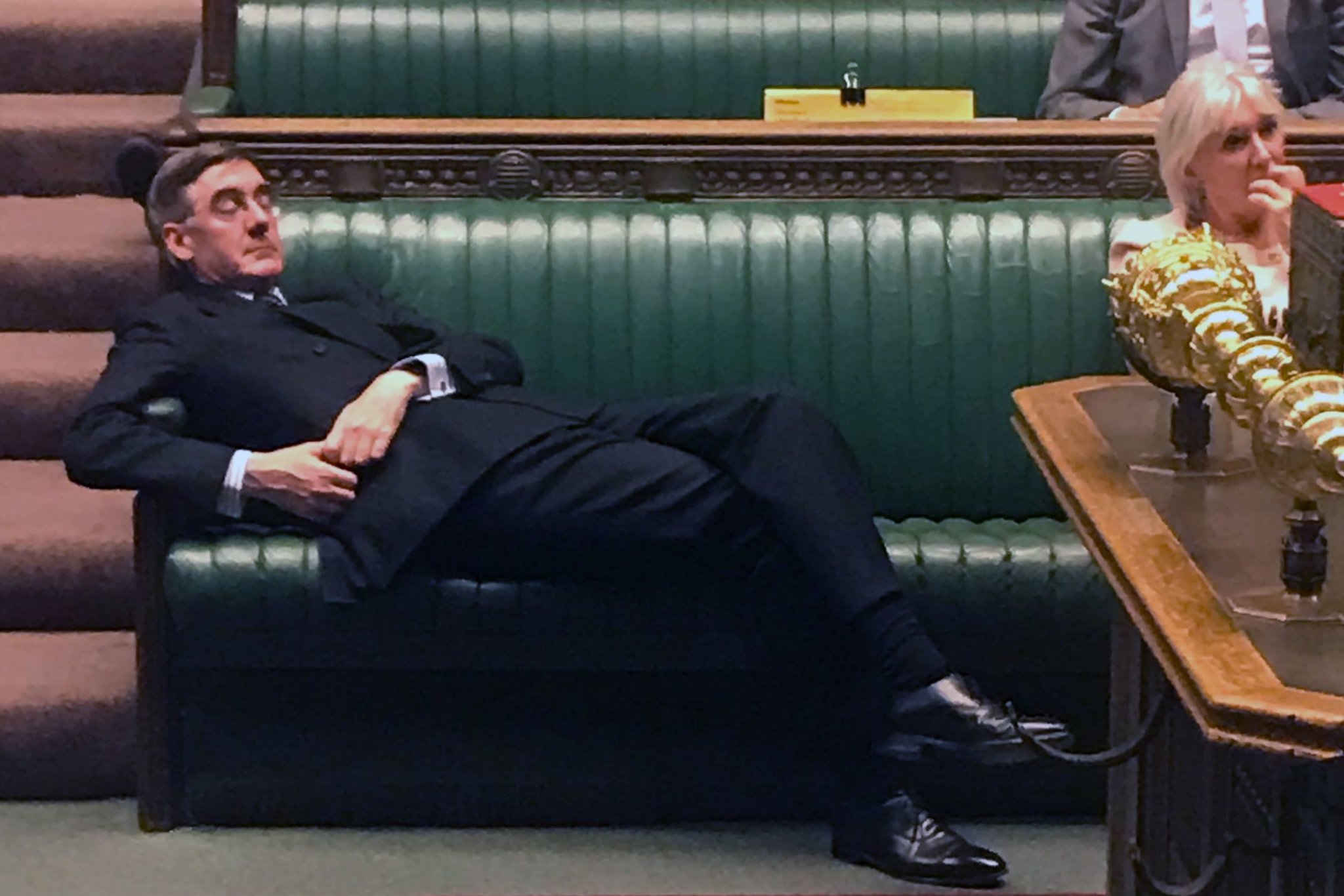Business
Jacob Rees Mogg: Galvanises businesses with action on energy

Westminster unveils energy support for businesses
NON WEDNESDAY, September 21, the UK Government announced new support for households, businesses and public sector organisations facing rising energy bills in Great Britain and Northern Ireland.
Through a new government Energy Bill Relief Scheme, the government will provide a discount on wholesale gas and electricity prices for all non-domestic customers (including all UK businesses, the voluntary sector like charities and the public sector such as schools and hospitals) whose current gas and electricity prices have been significantly inflated in light of global energy prices.
The support will be equivalent to the Energy Price Guarantee put in place for households.
It will apply to fixed contracts agreed on or after April 1, 2022, and to deemed variable and flexible tariffs and contracts.
The Price Guarantee will apply to energy usage from 1 October 2022 to 31 March 2023, running for an initial six-month period for all non-domestic energy users.
The savings will be first seen in October bills, which are typically received in November.
As with the Energy Price Guarantee for households, customers do not need to take action or apply to the scheme to access the support.
Support (in the form of a p/kWh discount) will automatically be applied to bills.
RISK OF BUSINESSES MISSING OUT
The price reduction level for each business will vary depending on their contract type and circumstances.
Non-domestic customers on existing fixed-price contracts will be eligible for support as long as the contract was agreed on or after April 1, 2022.
Provided that the wholesale element of the price the customer is paying is above the Government Supported Price, per unit energy costs will automatically be reduced by the relevant p/kWh for the duration of the Scheme.
Customers entering new fixed price contracts after October 1 will receive support on the same basis
those on default, deemed, or variable tariffs will receive a per-unit discount on energy costs, up to a maximum of the difference between the Supported Price and the average expected wholesale price over the period of the Scheme.
Non-domestic customers on default or variable tariffs will therefore pay reduced bills, but these will still change over time and may still be subject to price increases.
The government is working with suppliers to ensure all their customers in England, Scotland and Wales are allowed to switch to a fixed contract/tariff for the duration of the scheme if they wish, underpinned by the government’s Energy Bill Relief Scheme support for businesses on flexible purchase contracts, typically some of the largest energy-using businesses.
The government will provide equivalent support for businesses not connected to the gas or electricity grid. Further detail on this will be announced shortly.
SUPPORT MUST AVOID
THE CLIFF EDGE
The government will publish a review of the scheme’s operation in three months to inform decisions on future support after March 2023.
The review will particularly focus on identifying the most vulnerable non-domestic customers and how the government will continue assisting them with energy costs.
Prime Minister Liz Truss said: “I understand the huge pressure businesses, charities, and public sector organisations are facing with their energy bills, which is why we are taking immediate action to support them over the winter and protect jobs and livelihoods.
“As we are doing for consumers, our new scheme will keep their energy bills down from October, providing certainty and peace of mind.
“At the same time, we are boosting Britain’s homegrown energy supply, so we fix the root cause of the issues we are facing and ensure greater energy security for us all.”
Kate Nicholls, CEO of UKHospitality said: “This intervention is unprecedented, and it is extremely welcome that the government has listened to hospitality businesses facing an uncertain winter. ef
“The government has recognised the vulnerability of hospitality as a sector, and we will continue to work with the government, to ensure that there is no cliff edge when these measures fall away.”
SOME BUSINESSES WILL FALL
BETWEEN THE CRACKS, SAYS FSB
Tina McKenzie, Policy and Advocacy Chair, Federation of Small Businesses (FSB) said: “This announcement will give certainty for the next six months, but a tough year remains ahead of many small firms.
“Many have been waiting for details on the energy bills support package to plan confidently for the winter and beyond, so it’s encouraging to have clarity from the Government on the form that its support will take.
“The next stage will be for small businesses to learn what the changes mean for their current contracts and for any offers they have been looking at.
“Subsidising the unit costs of electricity and gas for six months is welcome, but there are those who miss out from before the six-month period, and help must not result in a cliff-edge afterwards.
“We are calling for a hardship fund to be created for those who fall outside of the current support or for whom the current support will be insufficient.
“There will be hardship for some businesses which signed fixed contracts after prices rose but before April, who find themselves excluded from the scheme.
“FSB calls on energy suppliers to allow those customers to switch without charge to new fixed contracts, covered by the Energy Supported Price if that makes the difference for the small business to survive.
“Small businesses are the definition of vulnerable when it comes to these energy price hikes. Small firms do not have the ability to hedge, or negotiate energy prices, so we will be encouraging Government to continue to help small businesses across all different sectors after the six months have elapsed.”
Ms McKenzie called for common sense and understanding from the energy industry, which will continue to reap massive profits: “Energy companies must play their role to support their small business customers.
“Energy providers must pass on the benefit of the freeze in full and must immediately provide updated bills and quotes to each small business customer who will be wondering today what the changes mean for them.
“We’re concerned that there is no mention of a cap on rises to standing charges, which are the other main element of energy bills. While households’ standing charges will be capped, the same can’t be said for businesses.
“We call on energy suppliers to support their small business customers by committing to lowering standing charges as far as possible.
“We’d like to see energy companies promise not to disconnect businesses from energy supply that are currently unable to pay for their energy bills this winter and not ask for disproportionate upfront payments.
“Currently, small firms could be disconnected from energy supply if they cannot pay bills after 30 days.
“We will be writing to energy companies in this regard and encourage them to support their small business customers in this difficult period.”
SHORT-TERM FIX FOR
LONG-TERM PROBLEM
Matthew Fell, CBI Chief Policy Director, said: “We welcome the government’s quick and decisive action to provide hard-pressed businesses with a substantial short-term fix to a long-term problem.
“The package will ease worries about otherwise viable businesses shutting up shop, and smaller companies especially will benefit from the discounted rate.
“Businesses will also want to know more about the exit strategy and what happens when the six-month cap runs out. Working closely with businesses will be key to successful implementation.
“The long-run solution is to double-down on energy security and to incentivise firms to push ahead with ambitious energy efficiency programmes to lower demand.”
Business
Cardiff airport investment under fire as Qatar link stalls despite £400m public backing

Ministers admit no meetings with airline that once received Welsh Government marketing support
THE FUTURE of Cardiff Airport’s long-haul ambitions has been thrown back into the spotlight after Welsh ministers admitted they have not personally met Qatar Airways executives — despite the airline once operating the airport’s flagship international route and benefiting from a publicly funded marketing partnership.
The admission has prompted fresh questions over whether taxpayers are getting value for the almost £400 million of public money that has been invested in the airport since it was bought by the Welsh Government in 2013.
South Wales Central Conservative MS Andrew RT Davies said the lack of direct engagement was “unacceptable”, arguing that ministers had failed to prioritise restoring one of Wales’ most important global connections.
In written questions to Economy Minister Rebecca Evans and Transport Minister Ken Skates, he asked how many times they had met Qatar Airways since August 2024.
Both confirmed they had not held any meetings.
Ms Evans said commercial negotiations are led by the airport’s executive team and added she would “very much welcome” the route’s return when the time is right.
Mr Skates said responsibility for the airport sits outside his portfolio and declined to comment further while discussions are ongoing.

Flagship route
Qatar Airways launched daily flights between Cardiff and Doha in 2018 to considerable fanfare.
At the time, ministers described the service as “transformational”, linking Wales directly to one of the world’s biggest aviation hubs and providing one-stop access to more than 150 destinations across Asia, Australia, Africa and the Middle East.
Business groups said the route would make Wales more attractive to inward investors and exporters, while tourism chiefs hoped it would bring higher-spending international visitors.
To promote the link, the Welsh Government entered into a two-year marketing partnership with the airline, understood to be worth around £1 million, aimed at raising Wales’ profile overseas and encouraging travel through Cardiff.
The agreement funded joint advertising and promotional campaigns in international markets.
However, the route operated for less than two years before being suspended at the start of the Covid-19 pandemic in 2020.
While Qatar Airways has since restored flights to other UK airports including Heathrow, Manchester and Birmingham, Cardiff remains the only former UK destination where services have not resumed.

Value for money questions
The situation has reignited debate over whether the public investment delivered lasting benefits.
Critics say the combination of direct airport funding and marketing support should have secured a more sustainable presence from a global carrier.
They question whether the advertising partnership represented value for money if the route ultimately disappeared and has yet to return.

For some observers, the absence of Qatar has become a yardstick for judging the success of government ownership.
After more than a decade and hundreds of millions of pounds in loans and support, they argue, Wales should be seeing stronger international connectivity rather than retreat.
Supporters counter that the pandemic severely disrupted aviation worldwide and that rebuilding routes takes time, particularly for smaller regional airports.
They also note that commercial airline negotiations are typically handled by airport management rather than ministers.

Passenger recovery
Cardiff Airport was purchased by the Welsh Government for £52m to prevent its closure and safeguard jobs.
Since then it has required repeated financial support packages to maintain operations and invest in infrastructure.
Passenger numbers remain below pre-pandemic levels, and the airport continues to compete with Bristol, which offers a far wider range of routes and attracts many Welsh travellers across the border.
Industry analysts say long-haul services such as Doha are especially important because they connect regions directly to global markets without relying on London hubs.
Without them, airports risk being seen as secondary or feeder operations.
Political pressure
Mr Davies said the government needed to show greater urgency.
“Senedd ministers have ploughed almost £400 million into Cardiff Airport since they bought it – yet they haven’t even bothered to meet with a major airline to re-establish a crucial international link,” he said.

“When that level of public money is involved, people expect leadership.
“Getting flights back should be a priority.”
The Welsh Government maintains it remains supportive of restoring the route and says talks with Qatar Airways are continuing through airport executives.
But for many travellers and businesses, the key question remains simple: after years of investment and promises, when will Wales once again have a direct long-haul link to the world?
Until Qatar — or another global carrier — returns, critics say, that question will continue to hang over Cardiff Airport’s future.
Business
Croeso awards return to celebrate Pembrokeshire’s tourism stars

Colin Jackson to host major industry night as entries open for 2026 event
THE CELEBRATION of Pembrokeshire’s tourism and hospitality sector is officially underway as the Visit Pembrokeshire Croeso Awards return for 2026 after a two-year break.

The prestigious awards, designed to recognise businesses that go above and beyond to deliver exceptional visitor experiences, are back with what organisers describe as “fresh energy and renewed ambition”.
This year’s ceremony will be hosted by Welsh sporting legend Colin Jackson CBE, the Olympic silver medallist and former world champion hurdler, who will act as compère for the evening.
The awards will take place on Thursday (Oct 29), bringing together leading hotels, attractions, restaurants and tourism operators from across the county for a night of celebration and recognition.

Seventeen categories are open for entry, including Best Hotel, Best Place to Eat, Accessible & Inclusive Tourism Award and Rising Star, highlighting both established operators and emerging talent within the industry.
Organisers say the event is not only about rewarding excellence, but also about developing the next generation of hospitality professionals.
At the heart of this year’s ceremony is a partnership between Pembrokeshire College and the Celtic Collection. Students will gain hands-on experience in staging a live, large-scale event, working alongside front-of-house teams and industry specialists to plan and deliver the evening.
The collaboration aims to give young people practical skills while supporting the long-term future of the county’s tourism sector.
Emma Thornton, Chief Executive of Visit Pembrokeshire, said: “We are very excited to be launching our 2026 Croeso Awards building on our 2024 event through working in partnership with Pembrokeshire College and the Celtic Collection.
“We’ve taken the deliberate step to launch three months earlier than in previous years. By doing so we hope this will encourage more entries, making it much easier for businesses and organisations to submit entries well ahead of the busy spring and summer season.
“If you haven’t entered the Croeso Awards before, please make this the year that you do.”
Applications are now open via the Croeso Awards pages on the Visit Pembrokeshire website and close on Monday (March 31). The shortlist will be announced on July 1.
Support sessions to help businesses complete applications will be held every Wednesday throughout February at the Bridge Innovation Centre in Pembroke Dock.
Tickets and a limited number of sponsorship opportunities are also available.
Photo caption:
Colin Jackson CBE will host the 2026 Croeso Awards when they return this October (Pic supplied).
Business
Welsh business confidence falls sharply in January

BUSINESS confidence in Wales fell by twenty points in January, according to the latest Business Barometer from Lloyds Bank, amid weakening optimism about both trading conditions and the wider economy.
The headline confidence figure for Wales dropped to 32%, down from 52% in December 2025. Firms’ confidence in their own trading prospects fell even more steeply, down thirty points to 38%, while optimism about the wider economy declined by eight points to 27%.
Despite the downturn in sentiment, Welsh businesses reported stronger hiring intentions. A net balance of 44% of firms said they expect to increase staff numbers over the next twelve months, up twenty-four points on the previous month.
Looking ahead, businesses in Wales identified their main priorities for growth over the next six months as developing new products or services (43%), investing in staff training and skills (40%), and introducing new technology (33%).
The Business Barometer surveys around 1,200 businesses across the UK each month and has been running since 2002, providing early indicators of regional and national economic trends.
UK outlook mixed
Across the UK as a whole, business confidence slipped by three points in January to 44%. While firms’ confidence in their own trading prospects increased by seven points to 59%, optimism about the wider economy fell sharply, down fourteen points to 28%.
London recorded the highest confidence level of any UK nation or region at 68%, followed by Northern Ireland at 66% and the West Midlands at 65%.
Sector picture
Retail confidence edged up slightly in January, rising by two points to 49%. Confidence in the service sector increased by one point to 42%, marking the first rise since the summer. Construction confidence, however, fell back after a particularly strong improvement in December.
Nathan Morgan, area director for Wales at Lloyds, said the figures reflected ongoing economic pressures but highlighted some positive signals.
“Business confidence has reduced this month, reflecting wider economic headwinds,” he said. “However, hiring intentions are up sharply, with Welsh businesses planning to invest in people at scale, showing a real commitment to growth despite the challenges.”
Hann-Ju Ho, senior economist at Lloyds Commercial Banking, said firms were entering the year with confidence in their own trading prospects, even as concerns about the broader economy persisted.
“The first rise in confidence in the services sector in seven months is encouraging, given the sector’s central role in supporting UK economic activity,” she said.
-

 Health4 days ago
Health4 days agoConsultation reveals lack of public trust in health board
-

 News5 days ago
News5 days agoCaldey still unsafe, survivors warn — despite Abbey’s reform claims
-

 Community5 days ago
Community5 days agoPembrokeshire students speak at national Holocaust Memorial Day event
-

 News7 days ago
News7 days agoWales warned against single police force as Lib Dems cite Scotland ‘lesson’
-

 Crime7 days ago
Crime7 days agoMilford Haven man appears in court charged with burglary and GBH
-

 Business7 days ago
Business7 days agoDuke of Edinburgh Inn in Newgale on the market for £325,000
-

 Local Government7 days ago
Local Government7 days agoTribunal over former Neyland councillor’s conduct adjourned
-

 News5 days ago
News5 days agoKurtz raises Gumfreston flooding in the Senedd as petition deadline nears
























